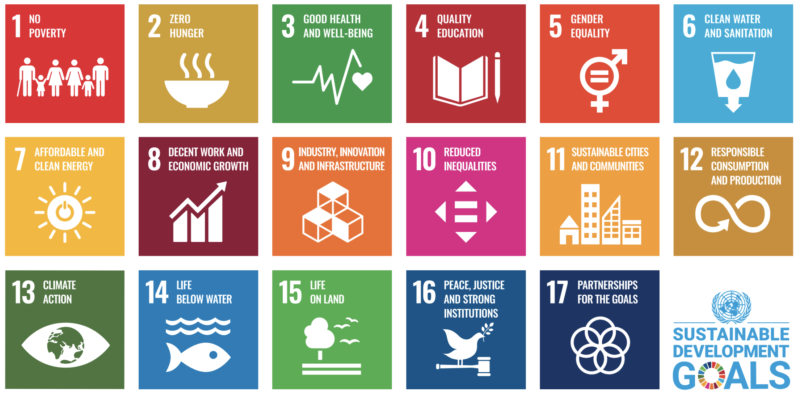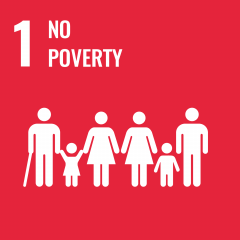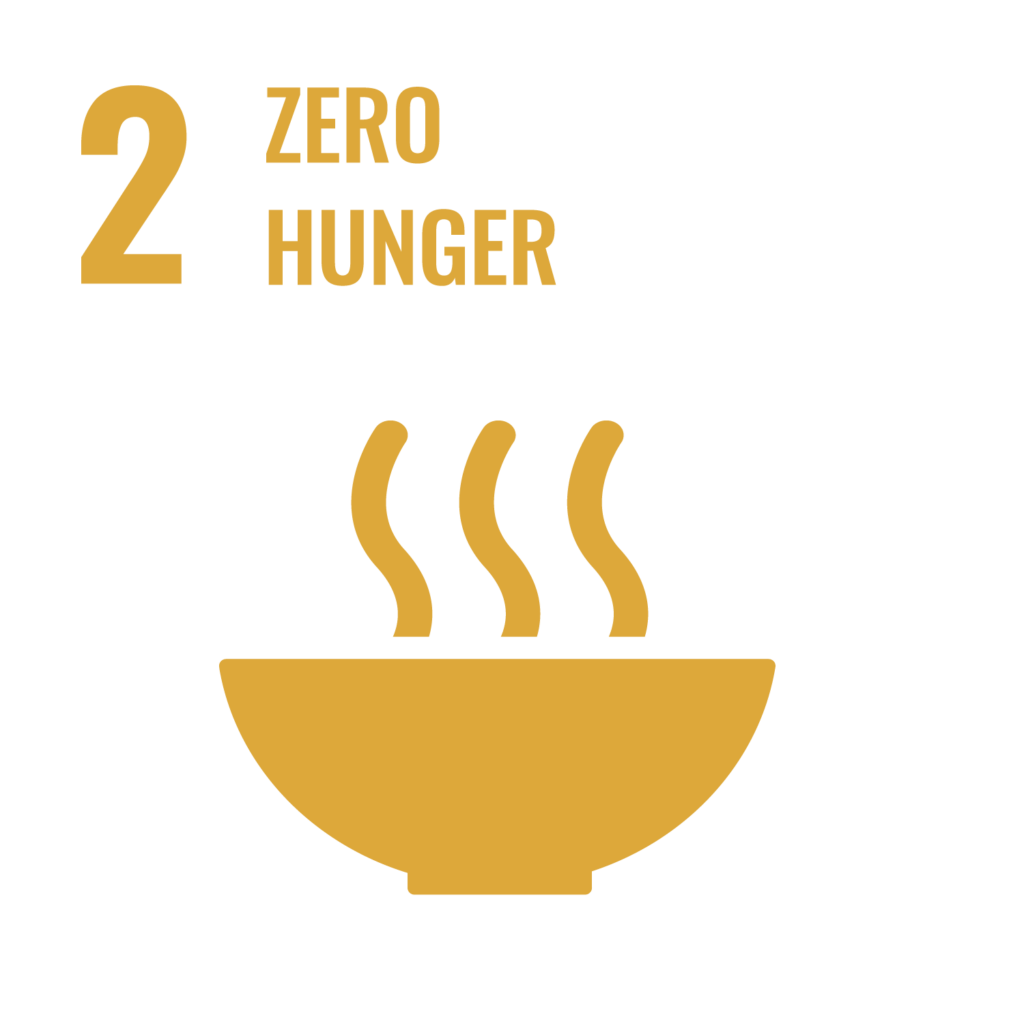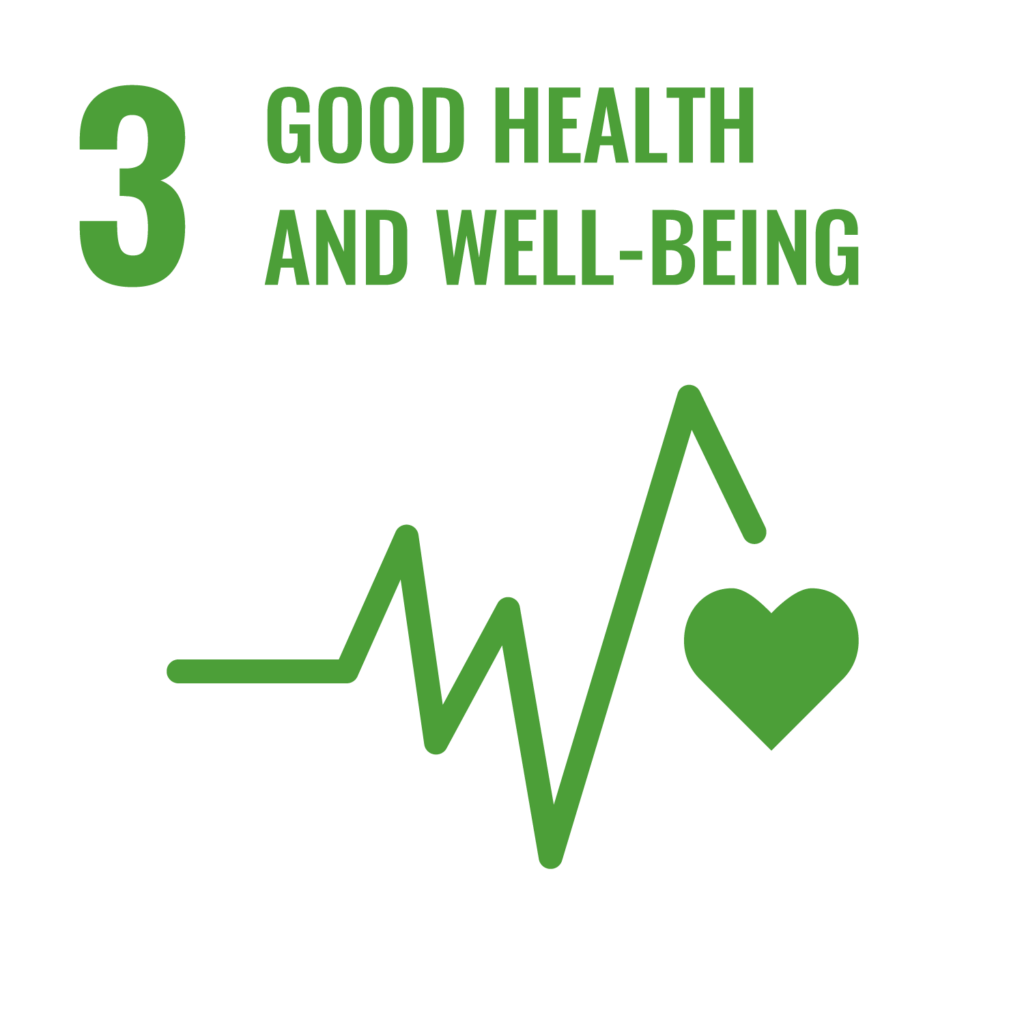
Sustainable Development Goals

In 2015, United Nations Member States universally adopted the 2030 Agenda for Sustainable Development organized around 17 Sustainable Development Goals (SDGs), which have been widely embraced by governments and civil society organizations, as well as a growing number of companies and investors. At their core, the SDGs are inherently aligned with the fundamental goals we have pursued for over two decades: universal human dignity and ecological sustainability.
In 2017, we joined other leading investors in signing the Stockholm Declaration, which was co-led by the UN Global Compact, the Global Reporting Initiative (GRI), and the Principles for Responsible Investment (PRI). By signing the Declaration, we reaffirmed our support for the SDGs and committed to using them as a framework in our investment approach, including investigating possibilities of measuring impact related to the SDGs.
Below, we explain how each of the 17 SDGs are reflected in our Impact Investment Standards, which were first published in 2005. Through the application of our standards, we believe we can build SDG-aligned portfolios that support the strength and resiliency of our social, environmental and financial systems.

We seek investments that contribute to poverty alleviation and economic development by filling capital gaps and increasing access to capital for underserved and disadvantaged populations. We favor financial institutions that provide banking, lending and insurance services to those traditionally excluded by the mainstream financial community. These companies can help underserved communities grow long-term, inter-generational assets by improving access to housing, providing affordable lending for small businesses and entrepreneurs, offering credit at affordable rates to high-risk borrowers, promoting retirement savings and investments, and educating customers to improve financial literacy. We also seek to support public pensions and certain debt instruments of supranational entities and development banks that direct capital to development projects in neglected regions.

We seek investments that support the sustainability of our food systems by promoting healthy, natural, and locally-grown food and by supporting small-scale farming and agriculture. For food producers, we positively consider sustainability certifications, including fair trade and organic product lines. For food retailers and service providers, we look for standards related to local sourcing, animal welfare, and GMO labeling and transparency, as well as programs to reduce food waste. We also seek investments that increase access to capital for small farmers and support rural and agricultural communities.

We seek investments that provide affordable, high-quality healthcare therapies and innovative products with the goal of addressing some of society’s most significant healthcare challenges. This includes investments in companies that produce preventative healthcare products like vaccines, focus on women’s health care, or devote a significant portion of research and development to treatments for some of the world’s toughest diseases.
The depth and consideration of access initiatives, responsible marketing, and pricing considerations are all interconnected when it comes to the promotion of societal health. We expect healthcare companies to maintain positive relationships with regulatory entities, public interest groups, and society at large. We also seek investments that support public and nonprofit healthcare systems to address unmet medical needs.

We seek investments that promote access to affordable, quality education and support public, non-profit education models and continuing education opportunities. We seek to direct capital to projects for primary and secondary public school facilities, as well as nonprofit universities. We especially favor investments that help improve education or job training programs in economically disadvantaged communities. We also look for opportunities to invest in companies that serve or partner with nonprofit education institutions by providing technologies and services that empower teachers and students and improve educational outcomes. We also look for companies who understand the importance of long-term investments in and the empowerment of their employees through tuition reimbursement, ongoing training and skills development programs.

While we continue to see progress on diversity across industries and geographies, women and racial minorities remain broadly underrepresented on corporate boards and management teams. We seek investments in companies that have strong gender and racial diversity in leadership, particularly at executive levels. We also expect companies to promote diversity and inclusion across all organizational levels and to train employees on sexual harassment and discrimination. We also look for initiatives to address inequalities, including strong disclosure practices and internal auditing to assess pay gaps. We look favorably on diversity across all industries as an indicator of the strength of a company’s management, culture and commitment to a just and equitable workplace.

We favor companies that have a record of handling today’s pollution challenges effectively and without regulatory controversy, while also helping to develop more sustainable practices for the future. We also seek investments that support sustainable, climate resilient water infrastructure and look to community relations as a key indicator for assessing investments in water utilities or public water authorities. We look for both public and private water utilities to provide high-quality services at fair rates and believe that efforts to maximize profits should not come at the expense of public access to clean, safe water.

We seek investments that promote the advancement of clean, renewable energy, including wind, solar and small-scale run-of-river hydroelectric. We invest in renewable-energy companies, including manufacturers of wind turbines and photovoltaic solar panels, as well as residential solar installers. We look for electric utilities to actively increase installed generation capacity from renewable sources, and for financial institutions to provide lending and insurance solutions for renewable power projects and assets. We also seek to support the resiliency and sustainability of energy infrastructure, including investments that promote smart-meter, distributed-grid and energy-storage technologies. We also look to invest in labeled and unlabeled green bonds that finance renewable energy and energy efficiency projects.

We seek investments that promote inclusive economic growth and employment. We expect companies to ensure a living wage, support the health and safety of their employees, and create positive, productive work environments. We support employees’ right to join a union and bargain collectively for the terms of their employment, and we expect company management teams to maintain respectful, cooperative relations with unions. We also look for companies to adopt inclusive non-discrimination employment policies and comprehensive labor standards for their suppliers to help ensure global supply chains are free of abusive working conditions, including forced and child labor. We also seek investments that support business and job creation, especially in economically disadvantaged areas.

We seek investments that help finance the construction and maintenance of essential, climate-resilient infrastructure, including roads, buildings, power supplies, and communication systems. Access to information and data is essential to economic development, so we especially favor investments that help expand access to the Internet and wireless communications technology in developing markets. We also look for companies that are committed to research and development, are effective in bringing innovative products to market, take due considerations in the management of their product safety testing, and appropriately recognize and manage the potential for failure or for harm of new products and technologies.

We seek to address global inequalities through investments that promote inclusive economic growth and employment, regardless of gender, race, age, sexual orientation, disability, religion, economic class or background. We especially favor investments that support social and economic development in poorer regions of the world. We expect companies to have strong non-discrimination policies, as well as comprehensive labor standards for their suppliers that incorporate protections for all relevant human rights to prevent labor abuses and ensure the ethical recruitment of migrant workers. We also look for companies to mitigate growing wealth and income inequality by assuring all employees a living wage, addressing pay gaps, paying their fair share of taxes, and allocating resources toward philanthropy that enriches the communities in which they operate. We expect companies to maintain fair and equitable relations with all stakeholders, including open and honest communication with their investors. We also support the regulation and monitoring of global financial markets, as we believe open and transparent markets are essential to ensuring that society can equitably reap the value created by corporations.

With over half of the world’s population living in urban areas and increasing urbanization expected to be a major demographic shift over the next few decades, private investment is needed to help finance a wide variety of public goods that are essential to meeting society’s basic needs, including infrastructure, social welfare, education, health care, and waste management. We seek investments that support the provision of these public goods, especially in underserved communities. We are particularly committed to supporting access to affordable housing, climate-resilient infrastructure, low-carbon mass-transit transportation systems, energy-efficient buildings and facilities, pollution-control systems, and renewable energy assets. In all of these investments, we take into consideration the community impact of the projects we help finance. We also look for companies to appropriately balance their efforts to innovate and experiment with respect for the role of government in assuring the availability of public goods.

We favor investments that promote sustainable consumption and production patterns and mitigate the environmental impacts of products and services. We seek companies that make substantial use of recycled materials in their manufacturing processes, that solve the challenges of circular, closed-loop design, that have found nontoxic substitutes for toxic chemicals used in manufacturing processes, and that are investing in making their products and services compatible with the ecosystems they affect. We look for companies to reduce the environmental impact of packaging and to implement recycling and product take-back programs. We also look for companies to disclose and report on the environmental impacts of their operations and production, as well as resource-efficiency initiatives.

We expect companies across all industries to be actively addressing the effects of climate change and their role in the transition to a low-carbon future. We seek investments in companies that set emissions-reduction targets, adopt renewable-energy and energy productivity goals, assess and plan for natural disaster scenarios, and enhance disclosure in accordance with the recommendations of the Financial Stability Board’s Task Force on Climate related Financial Disclosures (TCFD). We seek investments in companies that are substantial users, producers, or developers of resources, products, and technologies that reduce the risks of climate change, and seek to avoid those whose products or businesses contribute most heavily to climate change. We seek to promote alternatives to carbon-based fuels and look for electric utilities to actively transition to renewable energy sources. We exclude companies in the energy sector involved in coal mining and oil and natural gas exploration, production, transportation, storage, refining and related services.

We seek investments in companies that integrate sustainable fishing practices into its business models. Billions of people depend on marine and coastal biodiversity for their livelihoods and their primary source of protein. Today, however, the oceans are under severe threat from climate change, toxic pollution and unsustainable fishing practices. These factors threaten both the continued availability of fish for consumption as well as the healthiness of the fish we consume. We seek investments in companies that work to ensure that seafood in their supply chains is sustainably sourced, tackle the challenges of end-to-end traceability, use a variety of certifications such as MSC or ASC, and join multi-stakeholder task forces and industry associations, to advance the dialogue on sustainable seafood sourcing practices and the promotion of healthy ecosystems. Additionally, we seek companies with strong pollution controls and sound regulatory records.

communities that depend upon forests for their livelihoods. There are many investments we avoid due to the environmental and human rights risks associated with deforestation. For example, environmentally intensive practices such as industrial agriculture can have detrimental effects on forests around the world. We therefore seek companies that adopt and improve policies, practices and public reporting on forestry impacts. We favor companies that incorporate sustainable forestry practices within their global supply chains, such as using certifications for sustainable timber like FSC. We also look for companies to responsibly manage relations with local and indigenous communities and deter potential human rights abuses.

In a global economy, corporations benefit from international peace, security, and free trade. We look for companies to have strong policies governing human rights, nondiscrimination, ethics, anti-money laundering, anti-bribery, anti-corruption, and lobbying. Weak controls in these areas can have detrimental effects on peaceful and inclusive societies around the world, which is why transparency in these areas is crucial. We do not invest in business models that are antithetical to our shared goals of living in a peaceful and inclusive society, including military weapons and firearm manufacturers and for-profit prison operators. We also do not invest in the sovereign debt of nations with leading nuclear weapons arsenals and seek to avoid debt raised by governments with a history of corruption, as funds can be mis-allocated and misused at the expense of the nation and the well-being of its citizens. Conversely, we seek to invest in the debt of nations that have democratic governments, protections on press freedoms, and strong governance related to human rights, including active measures to prevent human trafficking and protect victims.

Standard setting is not a passive exercise. The process of putting principles into action begins with our Impact Investment Standards. Not only do our standards guide our investment decisions, but they also inform our engagement work. We regularly participate in multi-stakeholder collaborations with other with other investors and civil society organizations to share expertise and amplify our impact on key sustainability issues and gain additional insights into standards setting. We also look for companies to actively participate in collaborative partnerships to gain better understanding of how they impact societies, and listen to their communities’ opinions and work together to achieve positive social and environmental outcomes.
